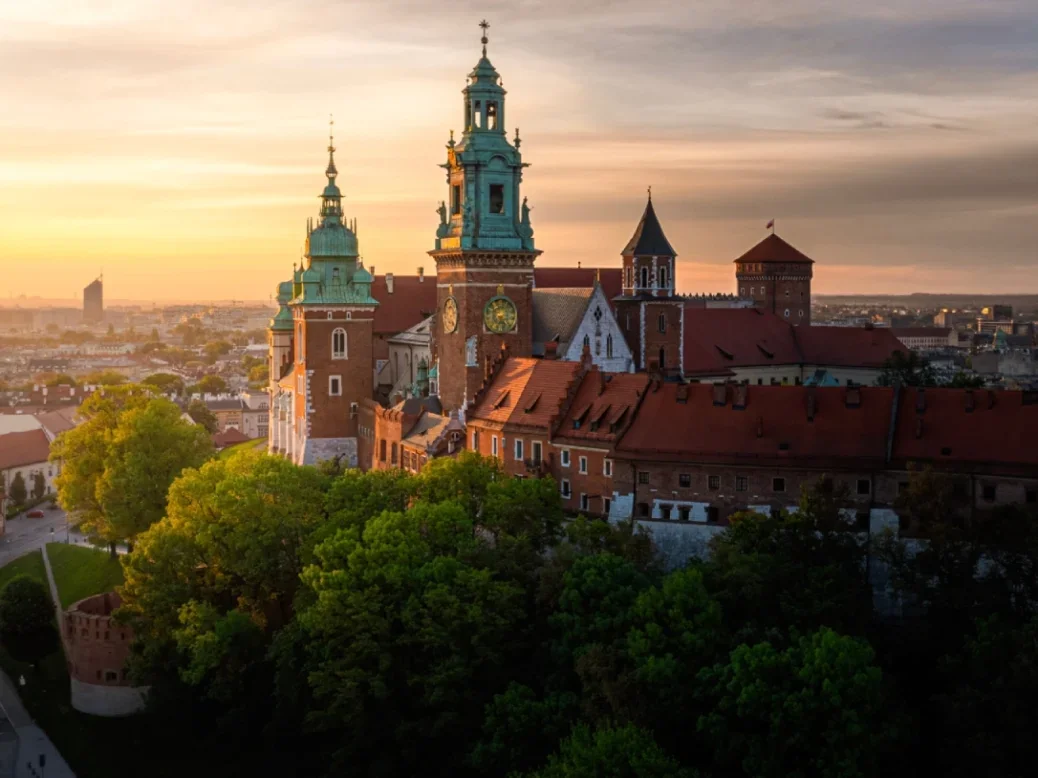
The BBC World Service has launched a pilot website in Polish using AI translation in a “systemic” way for the first time.
BBC News deputy global director Fiona Crack told Press Gazette the use of AI in the launch of BBC News Polska was designed to help bring the BBC’s coverage of stories of global interest such as the wars in Ukraine and Gaza to new audiences in a “slimline and efficient” way.
“Some of our language services are significant size teams doing a lot of local and relevant journalism. This new project is really about bringing the global news to more audiences with small amounts of enhancements and bespoke journalism as part of it.”
A team of four native Polish speakers, who have been recruited from the likes of Reuters and Radio Free Europe/Radio Liberty, will be leading the adaptation and curation of existing BBC content for Polish-speaking audiences using AI.
The BBC has published its own AI principles, which state that any use of the technology must fit its public service mission and be transparent to the audience.
Crack said this means: “There’s never a piece of journalism that goes out that the BBC’s made that hasn’t been seen and okayed by journalists.” It will also always be flagged to the audience when AI has translated the content.
AI will be used for text translation only and not in video, although BBC News Polska’s original content will include video and will also be distributed on Facebook and Instagram.
The BBC is using third-party technology developed by the European Broadcasting Union which it has adapted for its own purposes. The tech uses OpenAI’s Whisper speech recognition system and DeepL.
Some content will not just be translated but will be enhanced with angles or data more relevant for Polish audiences.
This translated content will sit alongside original journalism in Polish including blogs from BBC News presenter Kasia Madera and broadcast meteorologist Tomasz Schafernaker.
BBC News Polska is the first language launch by the World Service since BBC News Serbia in 2018 but Crack said AI provides a “huge opportunity”.
The BBC World Service has already experimented with AI translation technology at BBC Mundo in Latin America, BBC News Brasil and BBC News Afrique (for French speakers in Africa).
Journalists there were using an internal system that helped them do a first draft before a native speaker made grammar and syntax improvements, for example. As on the new site, there is a line at the bottom of translated articles making the use of AI clear.
But the previous uses were more ad-hoc and not connected into the CMS workflow.
Then around ten months ago, Crack said, they started thinking about it “in real earnest, which is: if we’re going to do this, it needs to be more systemic.
“We need to think about the tooling that we need, the capacity that we need, the kind of elements that we need to bake it into a workflow more systemically, something that would hopefully be part of our CMS, our content management system, eventually.”
She said this would make it easier for journalists to either directly translate a global story, or to adapt them with a regional twist, for example by adding Polish data, a Polish expert or using a different picture.
Crack described this as a “dual need: wanting to use the technology well and get it in a system that really helps our journalists, but also making sure that we’re still doing our core mission, which is relevant news, news that is important and helps explain the world to our audiences where they are.
“We need it to feel close and relevant to them. It’s not just something we’re pumping out. It’s something that’s real and relevant to them. And that really helps trust, and trust with the BBC is our keyword, really.”
Adding the tech into the CMS means the BBC is better ready for improvements in the future, Crack said: “The workflow is set up in a really clear way and as the tech changes and improves, we can slot it in. Once you’ve built your workflow around it, as the technology improves, we’ll be able to make it even more streamlined.”
She added: “The capability of translation is improving hugely and quickly and obviously the more it gets fed, the better it gets at the translation.”
Crack noted that there are plenty of global stories being reported on by the BBC that have international interest. “Our audiences all over the world want to know what’s going on in Ukraine. They want to know what’s going on in Gaza. They’re interested in China. There’s a lot of things that are on the top of agendas for lots of audiences…”
The aim is that the cluster model that is being set up to run the new site might be able to support another two to three languages, Crack said.
“But this is also about us understanding what we would do in the future. And our funding is still a thing that is very much debated and still being talked about but we would like to do this. It’s a slimline and efficient way of bringing that global news to new audiences.”
The BBC News Polska pilot is initially being run for 12 months – because it “takes some time to build up a native audience” – and is coming out of existing budgets.
The BBC World Service has recently had to make “difficult decisions” including cutting 130 roles in January as funding remains a challenge despite additional UK government funding announced in November.
Email pged@pressgazette.co.uk to point out mistakes, provide story tips or send in a letter for publication on our "Letters Page" blog

